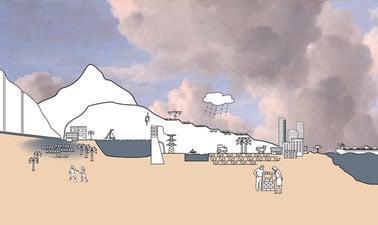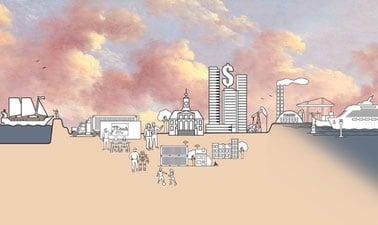Carola Hein
Carola Hein is Full Professor and Chair, History of Architecture and Urban Planning at Delft University of Technology. Her research interests include the transmission of architectural and urban ideas, focusing specifically on port cities and the global architecture of oil. She leads the PortCityFutures research program that focuses on evolving socio-spatial conditions, use and design of port city regions, in particular exploring areas where port and city activities occur simultaneously and sometimes conflict. Among other major grants, she received a Guggenheim and an Alexander von Humboldt fellowship. She serves as Vice President of the International Planning History Society (IPHS), Editor of PORTUSplus the journal of RETE, co-editor of Creative Practices in Cities and Landscapes (CPCL), IPHS Editor for Planning Perspectives and as Asia book review editor for Journal of Urban History.
Her books include: Adaptive Strategies for Water Heritage: Past, Present and Future, The Routledge Planning History Handbook (2017), Uzō Nishiyama, Reflections on Urban, Regional and National Space (2017), Port Cities: Dynamic Landscapes and Global Networks (2011), The Capital of Europe. Architecture and Urban Planning for the European Union (2004), Rebuilding Urban Japan after 1945 (2003), and Cities, Autonomy and Decentralisation in Japan. (2006), Hauptstadt Berlin 1957-58 (1991). She has also published numerous articles in peer-reviewed journals, books, and magazines.


